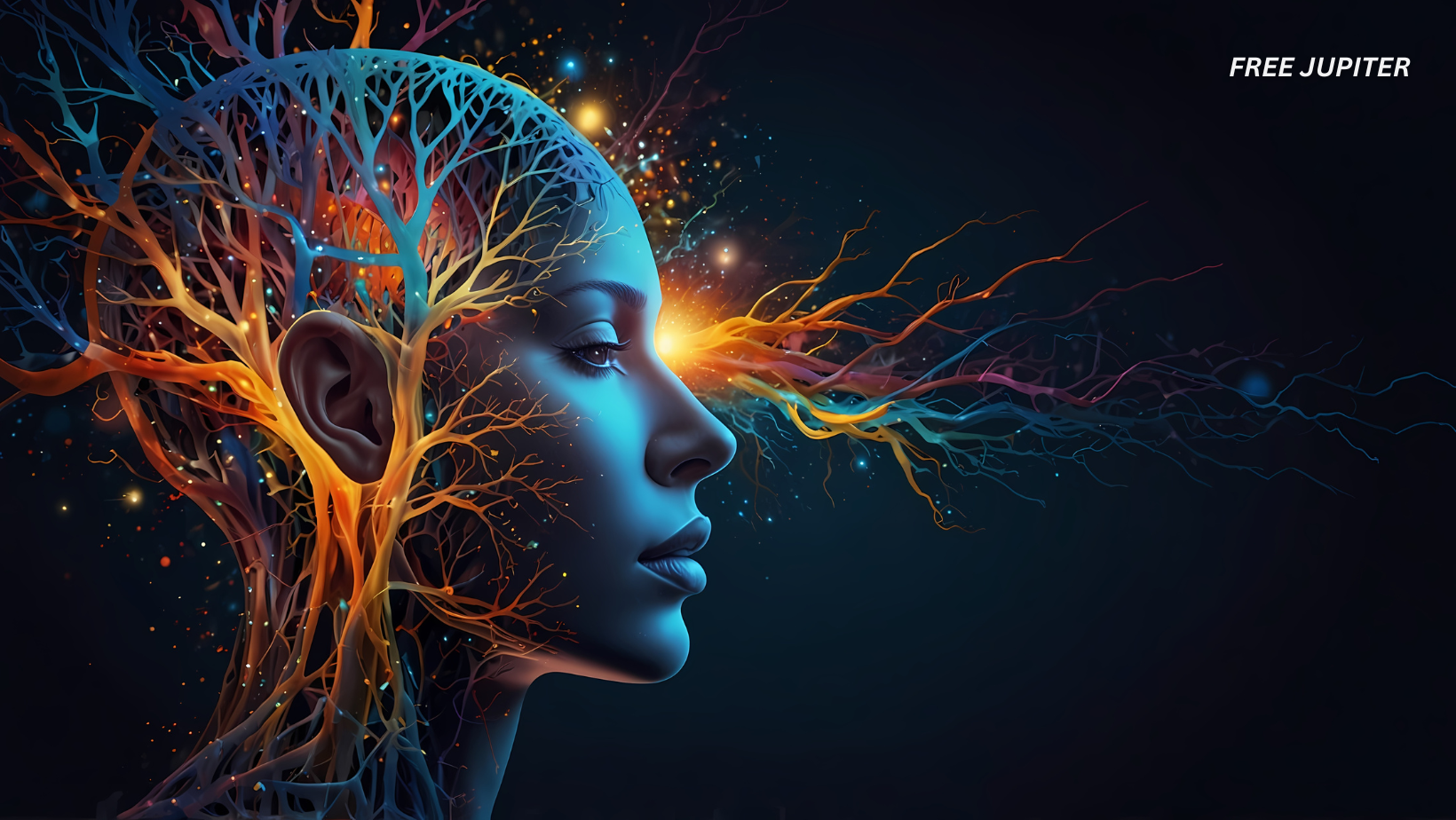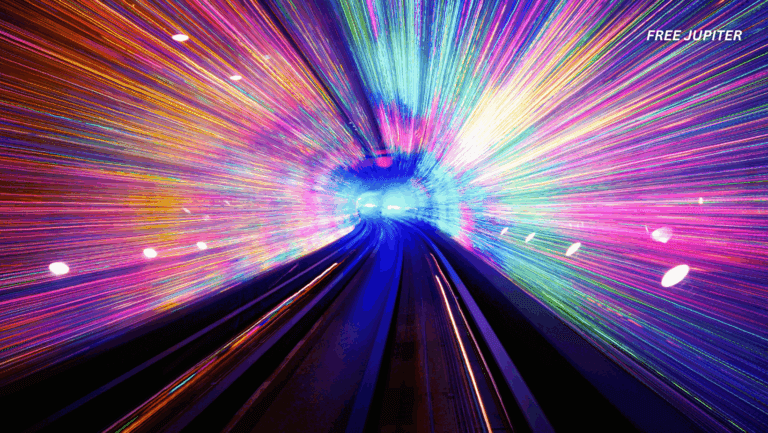Friendly Note: FreeJupiter.com shares general info for curious minds 🌟 Please fact-check all claims—and always check health matters with a professional 💙
What if your thoughts, emotions, and sense of self were the Universe simply doing what it’s always done: drifting toward disorder?
That’s the mind-boggling idea behind a bold new theory presented by a team of scientists. According to them, human consciousness might actually be a side effect of entropy—a fundamental law of physics that’s constantly pushing everything toward chaos.
Let’s unpack that.
What Is Entropy, and Why Does It Matter?
In the world of physics, entropy is a concept that explains why things fall apart over time. It’s the reason your coffee cools down, why your bedroom gets messy, and why ice eventually melts into water. It’s nature’s tendency to move from order to disorder.
Entropy doesn’t mean “mess” in the everyday sense—it’s more about how energy and information spread out. A freshly shuffled deck of cards has higher entropy than a neatly ordered one. A cooling cup of tea has more entropy than a steaming hot one. Left to their own devices, systems prefer randomness over neatness.
So far, so good. But what does any of this have to do with your mind?
The Brain, Through the Eyes of Physics
Researchers wanted to explore how entropy shows up inside the brain. They analyzed the brainwaves of nine people who were in three different states: fully awake, fast asleep, and experiencing seizures. And what they found was fascinating.
- When people were wide awake and alert, their brain activity was full of variation—neural signals danced in all directions, forming countless patterns and possibilities.
- During sleep or seizures, however, the brain’s activity became more predictable and repetitive. Fewer patterns, less variability.
This variability—this explosion of possibilities—is what scientists refer to as higher entropy. And it turns out that the most conscious brains were also the most entropic.
In other words, the more flexible and chaotic the brain’s activity, the more conscious the person seemed to be.
Read more: New Study Reveals What’s Really Making People Gain Weight
Could Consciousness Be Entropy in Action?
This observation led researchers to a daring conclusion: maybe consciousness is what happens when a system (like the brain) maximizes its ability to process and transmit information.
Think of the brain like a massive traffic system. When roads are closed (low entropy), traffic becomes predictable and slow. But when roads open up, allowing endless routes and combinations (high entropy), traffic can flow in unexpected, efficient, and even creative ways.
Your brain, when fully awake, is like a city buzzing with traffic from every direction—flexible, dynamic, and alive.
So, could consciousness simply be the brain’s way of handling all that complexity? An emergent property of its push toward maximum information flow? It’s possible.
Emergent Properties: When the Whole Is More Than the Sum of Its Parts
Here’s a helpful concept to throw into the mix: emergence.
Emergence describes phenomena that arise when individual pieces of a system interact in just the right way to produce something totally new. Think of how:
- A flock of birds creates beautiful patterns in the sky, even though no single bird is leading.
- A colony of ants solves complex problems without a central planner.
- Your brain’s 86 billion neurons somehow give rise to you.
If entropy is encouraging systems to explore all possible configurations, and the brain is one of the most complex systems we know, then consciousness might be the emergent result of this drive toward complexity and unpredictability.
So… Are We Just Along for the Ride?
If this theory is correct, it raises some truly profound (and slightly unsettling) questions:
- Are our thoughts and feelings just byproducts of physics doing its thing?
- Is free will an illusion, born from a brain optimized to juggle information?
- And could other complex systems—artificial intelligence, maybe?—develop consciousness if they reach high enough levels of entropy?
This doesn’t make your experience any less real. But it does suggest that being conscious might not require magic, souls, or secret ingredients. It might just be what happens when a highly advanced system follows the natural rules of the Universe.
Read more: Scientists Say This Simple Exercise Can Reduce Your Biological Age By 9 Years
The Study: A Humble Start With Big Implications
It’s worth noting that the study this theory is based on involved only nine participants. That’s a very small sample size, and the results are still considered preliminary.
However, the implications—if they hold up—could be enormous. This idea might help bridge the gap between biology and physics, offering a unified way to understand life, the mind, and the Universe itself.
Rather than seeing consciousness as something separate from the laws of nature, it becomes part of the grand story—a story written by entropy.
How This Ties Into the Bigger Picture of the Universe
Let’s zoom out.
Entropy is at the heart of how stars burn, how galaxies form, and how time moves forward. It’s the reason a sandcastle crumbles, but also why life evolves and adapts. Paradoxically, in trying to resist entropy, systems often become more complex, not less.
Your body, for instance, is a complex machine built to resist decay—for a little while. Life organizes itself temporarily, but eventually, entropy wins.
If consciousness is part of this story, then it’s not some quirky evolutionary glitch—it’s a natural, even inevitable, result of how matter and energy evolve under the laws of physics.
You’re not just a spectator in the Universe. You are the Universe—thinking about itself.
A Curious Connection to Artificial Intelligence
Interestingly, this idea has sparked conversation among those studying artificial consciousness. If complex information-processing systems (like the brain) can become conscious when their entropy reaches a certain threshold, then:
- Could AI systems, which are rapidly increasing in complexity, eventually reach a similar threshold?
- Would they then “wake up” and become self-aware—not because someone programmed it, but because the system simply became too complex not to?
It’s a speculative leap, but one that has real-world implications for how we build and manage intelligent systems in the future.
Read more: Tiny Black Holes Might Be Lurking in Your Home
Final Thoughts: Embracing the Chaos
This theory doesn’t claim to have all the answers. In fact, it invites more questions than it answers. But that’s often the hallmark of a great scientific idea—it opens doors instead of closing them.
The thought that your consciousness might be an expression of entropy—of natural disorder striving to express itself through complexity—is both humbling and poetic.
It means that your brain’s wild dance of neurons, your wandering thoughts, your dreams, worries, and joys, are not anomalies in the system. They are the system.
You are a ripple in the great cosmic tide. A self-aware byproduct of the same forces that move the stars, stir the oceans, and make time tick forward.
And that, in its own strange way, might be even more beautiful than any miracle.










